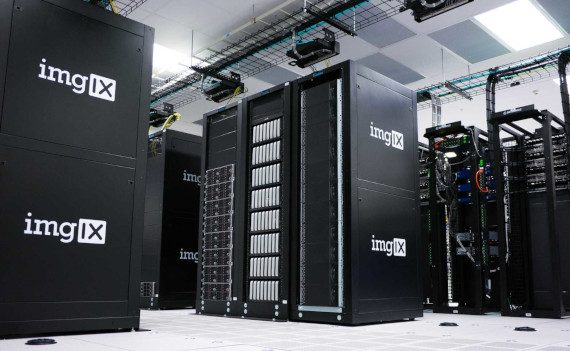Blog Post
Cloud-Watch - Cloud Vendors
by: Simon Hughes
date: Friday, Mar 1, 2019
category:
cloud-watch
cloud
For the first in the Cloud Watch series, I thought i would share a quick summary of the major cloud vendors at the moment, and highlight their key technologies and strengths. This is something I work through with each of my clients when I onboard then, to ensure we are building our platforms in the right place. There is no default answer here, every business needs to be evaluated based on its requirements.

In alphabetical order the key players in the cloud market are:

AWS and Azure are currently the biggest cloud vendors in the market by quite some margin, and for very good reason. In terms of capabilities, AWS has pretty much everything covered you have ever thought of, and then some more as well. AWS covers off the full spectrum of types of services. They have base Infrastructure if you want to create virtual machines and manage that yourself. If you want databases, both relational and object they are covered off with multiple offerings. And if you want to move away from infrastructure then there are a number of options available for embracing the containerised options. Everything within the AWS ecosystem is fully automatable in a number of ways, they have embraced the opensource stacks of chef, puppet, and terraform to allow you to fully script out your infrastructure, but also have their own language for scripting too. Everything within AWS can be configured to be fully resilient across multiple data centers, and is billed on a per second usage model. I am a big fan of AWS and a number of my clients host their platforms on it.

Google Cloud is one of the smaller cloud vendors, and does not anywhere near as much publicity as the likes of Microsoft and Amazon. It was relatively late into the cloud game, and is only recently started to gain traction. The basic capabilities of the Google Cloud Platform are all available, but there just isn't the depth of options compared to the likes of AWS. However, for the majority of my customers it would meet their needs, but as yet I don't have any customers of the GCP.

The IBM Cloud is a relatively niche platform. It has been through a number of branding iterations as the platform has evolved. Initially bearing the BlueMix name, the platform provided the basic Platform as a Service capabilities it needed, but failed to gain any major traction outside the realms of normal IBM customers. IBM then purchased its SoftLayer offering to allow the quick provision of bare metal physical servers. This gained traction for customers needing large scale hardware to run the likes of SAP and Oracle in the “Cloud” but still to this day its only large IBM accounts that use the IBM Cloud.

Microsoft Azure and AWS are neck and neck, both in terms of the sizes, the capabilities and the staggering rate at which they bring on new technology. The choice between AWS and Azure will almost always come down to the skills within your teams. If you are a dedicated Microsoft shop then there will be some capabilities that are best served by Azure, and if you embrace the open source you may lean towards AWS. But there are some key differences. Some of the newer technologies are being adopted at different rates so AWS and Azure may be in different places. Some of the key differences are around the managed services platforms, and the newer AI, Chatbot capabilities where Azure currently has the lead. I have personally built a number of platforms within Azure, and several of my clients host their platforms there now.

The Oracle Cloud is a very Niche player, but if you have a need for Oracle products then this really is the only sensible option. Very few of the other cloud vendors have managed to agree commercial terms with Oracle so their products are only available here.

Rackspace are one of the biggest traditional hosting providers, and have recently moved into the cloud area. They have embraced the open source cloud stack (OpenStack) and provide a very good service. They don't however have anywhere near the scale of the major cloud vendors, so you either want more control of your hosting setup or you have a large amount of technology staff who are used to dealing with OpenStack.

UK Cloud are an interesting proposition in that they are part funded by the UK Government. They provided a contract with a hosting provider to deliver a hosting solution that could easily be accredited to the “OFFICIAL” and “OFFICIAL-SENSITIVE” classification. So major government clients started to use this as an easy way to transition from on-premise to more cloud based vendors. Since Microsoft and AWS now also offer the same levels of accreditation it will be interesting to see where this one goes.
As with anything, there are many choices for hosting and there is no default correct answer. I ensure I look across the businesses I work with to ensure they deliver on the right technology platforms, that includes software and cloud hosting where appropriate. To find out how I can help you, feel free to contact me, pick up the phone or drop me an email.
Related Blog Posts

09 Jan
What is Cloud-Watch
In order to bring a little more regularity to my blogging, and structure things a bit more I decided to introduce 3 new areas to my blog, Client Watch, Cloud Watch and Technology Watch.
Read More